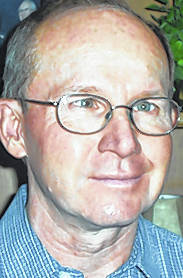“With everything going on today, it sure would be nice to go back to those days.” That’s a sentiment I get sometimes when I watch reruns of the TV classic, The Andy Griffith Show. And you probably feel the same way, too.
You can find reruns of the series on a TV channel just about every day. Once again you can enjoy life in Mayberry, with Sheriff Andy Taylor, his son, Opie, Aunt Bea, and, of course, Barney Fife. I was reminded of the show when I used an episode of the series while teaching a class at church this past Wednesday night. (The correct church term now is not teaching, but “facilitating.”)
The Andy Griffith Show premiered in the fall of 1960. The show ran for eight years, and was never out of the top ten in television viewers for the entire time the show was on the air. Don Knotts, as Barney, and Frances Bavier, as Aunt Bea, won several Emmy Awards for their acting in the series. Ironically, Andy Griffith never won an Emmy. But Andy was the driving force behind the show and its success. The show has remained popular, even after the last episode was filmed.
Like many of you, I grew up with The Andy Griffith Show. As a matter of fact, Opie and I were the same age. We all could relate to Mayberry. It was right here in North Carolina. When Andy and Barney talked about “goin’ up to Raleigh,” we knew what they were talking about.
But do we really want to go back to those days? Remember the Cold War? I do remember being told how to crawl under our desks in case those evil Russians launched a nuclear bomb. That’s scary to a first grader. Then there was the Vietnam War and all the civil unrest of the 1960’s. If you are an African-American, you sure don’t want to go back to those days. And think about summers without air conditioning. Trying to sleep at the foot of the bed, hoping to catch a faint breeze coming through the window on a sultry summer night is not something I long for its return.
So why do so many of us watch The Andy Griffith Show, and wish we could be back in Mayberry? It’s those same moral lessons and good hearted people that make it so easy to teach, or facilitate, the class on Wednesday night. Show writer, Bill Idelson said, “You know what the secret of the show is? You know why everybody loves it? It’s about man’s humanity to man rather than man’s inhumanity to man.” The people of Mayberry were good people. Some were nuts, as Barney would say, (and he should know) but they were good people and they treated each other with love and respect. It also helped that the show had excellent writers, directors and actors.
But I think there’s another reason many of us look back to yesterday in Mayberry. And it has to do with today. Well, more with tomorrow and the future. Back in the sixties, when I was growing up, my parents believed that my sister and I would have a better life than they did. They worked hard to make it so. Their present may have been hard, but they knew the future for their kids would be better. They had hope for the future, and that hope made their present worth living and gave it purpose.
But that is not so today. A recent survey stated that only 14% of adults surveyed by pollsters feel that their children will have more than they have. Sixty-five percent of those surveyed feel their children will have less. That’s not a lot of hope for the future. Not even the promises from our politicians of free healthcare and college, or a big beautiful wall at our southern border make feel more optimistic about the days ahead.
But we should have hope for our future. God does. In Jeremiah 29:11, God proclaims, “For I know the thoughts that I think toward you, says the LORD, thoughts of peace and not of evil, to give you a future and a hope.” A future and a hope. The present doesn’t have to be so bad after all.

